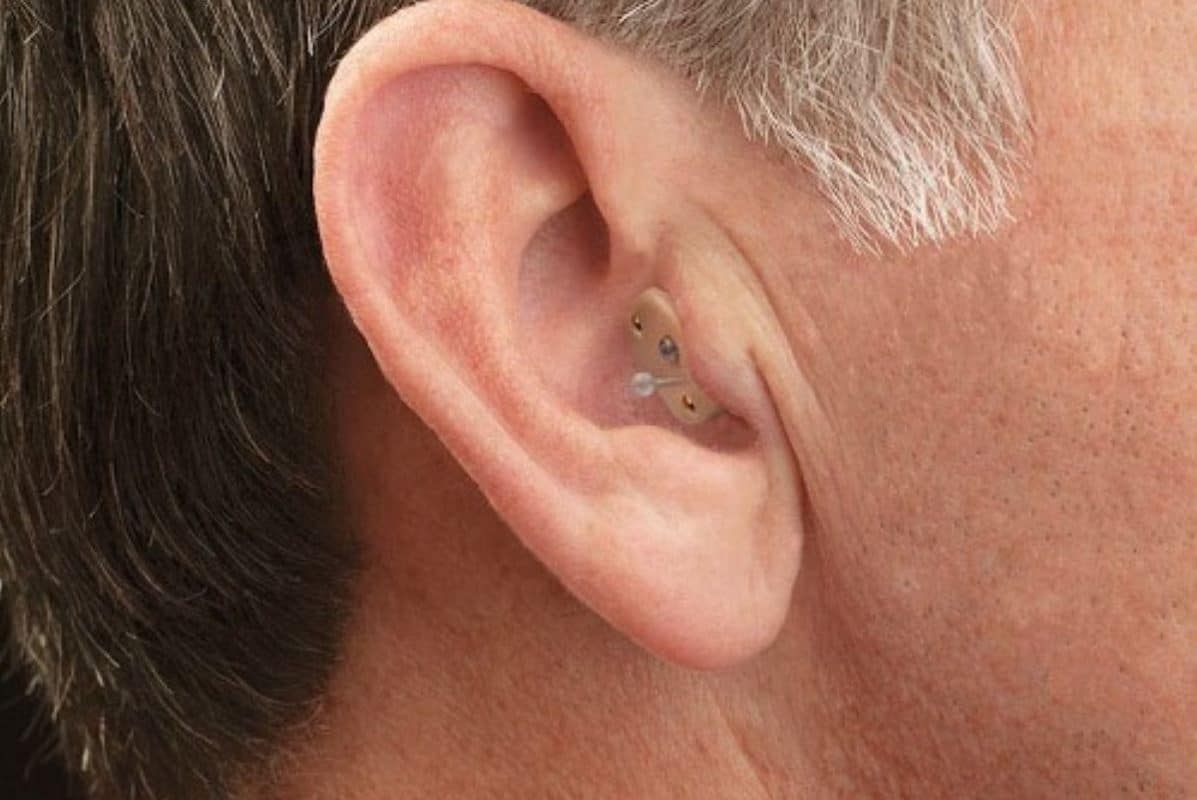It is becoming increasingly common to purchase an over-the-counter (OTC) hearing aid to treat mild to moderate hearing loss. OTC hearing aids are cost-effective, convenient, and often require no prescription.
In this guide, we will provide a comprehensive overview of the factors you should consider when shopping for an OTC hearing aid, different types of OTC hearing aids available on the market, price range and warranty options for OTC hearing aids, how to set up and use them at home, and lastly the pros and cons of purchasing an OTC hearing aid.
After reading this guide you should be equipped with all the information you need in order to make an informed decision about whether or not an over-the-counter hearing aid is right for your needs.
Overview
This blog post will provide you with a comprehensive guide to finding and purchasing cost-effective over-the-counter hearing aids. We'll discuss the types of hearing devices available, outline the benefits of each, and provide expert advice on how to select the right device for your budget and individual needs.
You'll learn about the latest technology, features, and design options, as well as tips on how to find quality products at a reasonable price. With this knowledge in hand, you can make an informed decision when it comes time to invest in over-the-counter hearing solutions that are both effective and affordable.
Factors To Consider When Shopping For Cost-Effective Over-The-Counter Hearing Aids
When shopping for cost-effective over-the-counter hearing aids, there are several factors to consider. First, it is important to research the various styles of hearing aids available. There are a variety of designs to choose from, ranging from in-the-ear and behind-the-ear models to ear canal devices and digital technology. It is important to select the right type of device that will best suit your hearing requirements.
Additionally, consider the price range of different makes and models and look at reviews from previous customers. Lastly, make sure that any over-the-counter hearing aid you purchase includes a warranty or return policy just in case you experience an issue with your device after purchasing it. By taking these factors into account when shopping for an over-the-counter hearing aid, you can ensure you get the best cost-effective option available.
Different Types Of Otc Hearing Aids
Over-the-counter hearing aids are cost-effective solutions for those looking to improve their hearing. They come in a variety of shapes and styles, so it's important to know which type is right for you. There are many different types of OTC hearing aids available, including behind the ear (BTE), in the canal (ITC), and in the ear (ITE) models.
BTE hearing aids attach at the back of the ear and provide higher sound clarity than ITC or ITE models. ITC or ITE models sit inside the ear canal and offer greater discretion as they are less visible to others. These devices can also be personalized with custom programming to accommodate individual needs better than a one-size-fits-all device would. As everyone's needs are different, it's important to research each type before deciding on an OTC hearing aid that's right for you.
Price Range And Warranty Options For Otc Hearing Aids
OTC hearing aids are an increasingly popular choice for those looking for cost-effectiveness without sacrificing quality. The price range of these devices can vary greatly, with lower-end models being available as low as $50 and more high-tech versions costing up to several hundred dollars.
Most OTC hearing aids come with a manufacturer’s warranty of up to two years, giving users some protection in case of malfunction or defects. When selecting an OTC hearing aid, it's important to take the time to compare prices and warranty options from different manufacturers so that you purchase one that offers the best value for your money.
Setting Up And Using Otc Hearing Aids
Over-the-counter (OTC) hearing aids are an increasingly popular option for those looking to improve their hearing without the added expense of a full audiologic evaluation. Setting up and using OTC hearing aids is relatively easy, and doesn’t require any special tools or equipment. First, place the device over your ear canal. It should feel snug yet comfortable.
Then you can adjust the speaker volume level to a comfortable setting by rotating the control wheel until you can hear more clearly. Finally, it is important that you keep the hearing aid clean by using a soft cloth to remove any dirt or debris after each use, and changing out your dome tip every few weeks if possible. With proper maintenance, OTC hearing aids can provide a cost-effective way to improve your hearing health!
Pros And Cons Of Purchasing An Over-The-Counter Hearing Aid
When considering hearing aid options, purchasing an over-the-counter (OTC) device is an attractive option due to its relatively low cost and ease of accessibility. Although OTC hearing aids are typically cheaper than custom-fitted devices from a professional audiologist, they come with their own set of pros and cons.
The major benefit of OTC hearing aids is that they offer basic amplification at a lower price point, making them a good option for those on a tight budget. Additionally, they can be purchased without the hassle of scheduling an appointment with a specialist or waiting for your insurance company to approve the purchase.
However, in most cases, OTC devices provide less customization than fitted models and often do not have advanced features such as directional microphones or noise cancelling technology. Therefore, it’s important to weigh all the potential advantages and disadvantages before making a decision about which type of hearing aid is best suited to your needs.


